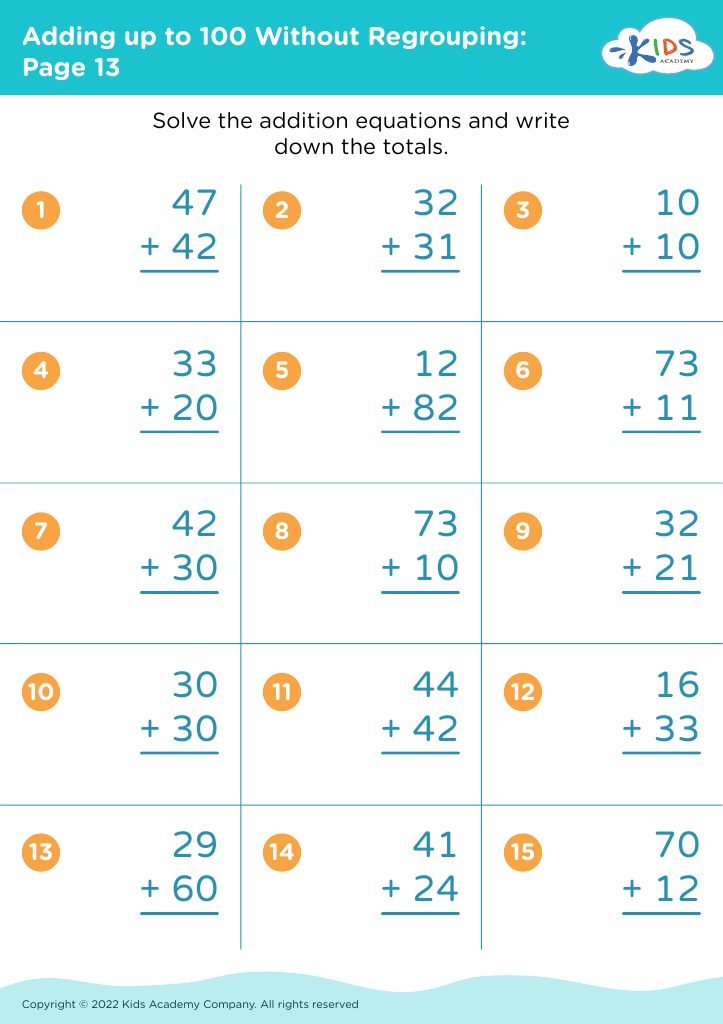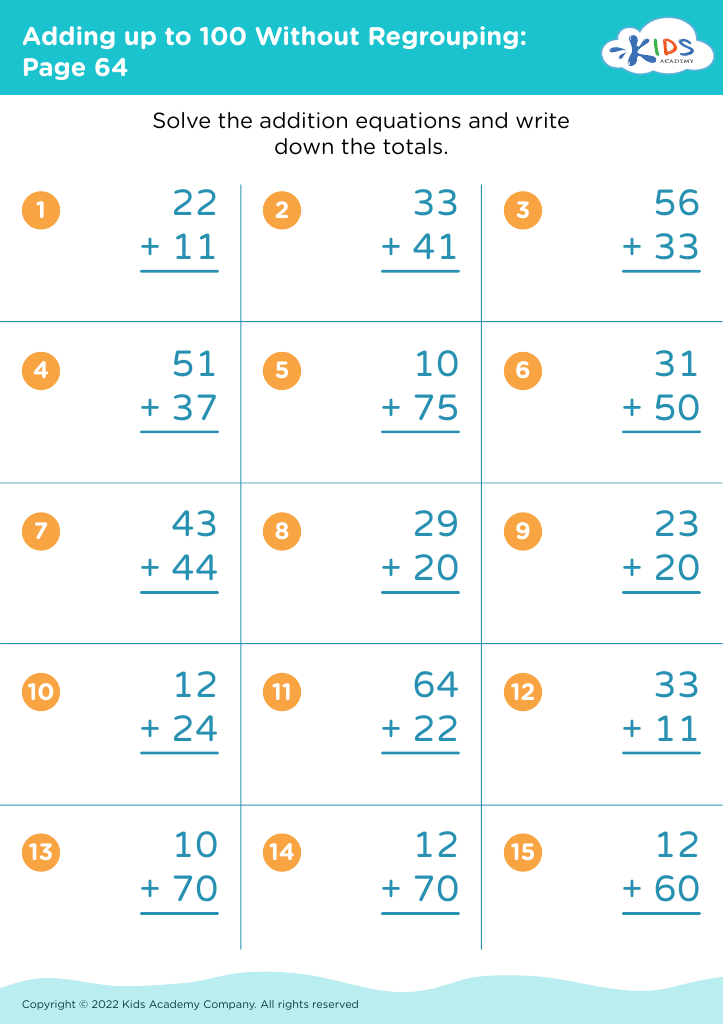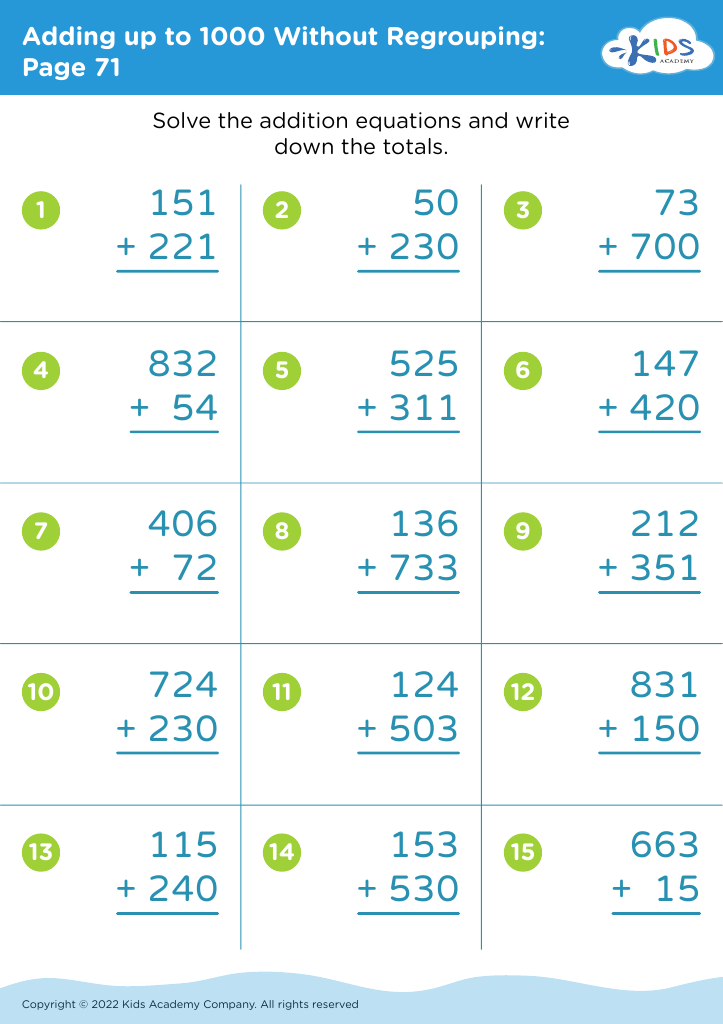Understand sequences Worksheets for Ages 3-8
5 filtered results
-
From - To
Discover our engaging "Understand Sequences Worksheets" designed for children ages 3-8! These printable resources help young learners grasp the concept of sequencing through fun, interactive activities. Our worksheets encourage kids to recognize patterns, order events, and organize items, strengthening their cognitive skills and enhancing their ability to follow directions. Perfect for preschool and early elementary classrooms or at-home learning, these worksheets are aligned with early childhood education standards. Whether you're reinforcing classroom lessons or seeking supplementary materials, our sequences worksheets provide the ideal balance of education and enjoyment for young minds. Start your child's educational journey with us today!
Understanding sequences is foundational for young children, significantly shaping their cognitive development and problem-solving skills. For ages 3-8, children begin to recognize patterns, chronological order, and logical progression in various contexts, which are essential skills for later learning.
Parents and teachers should emphasize sequences as they promote literacy and numeracy. In reading, recognizing the sequence of events helps children comprehend stories, leading to better retention and engagement. In math, understanding sequences lays the groundwork for grasping concepts like addition, subtraction, and even multiplication as children learn to recognize progressions and patterns.
Moreover, mastering sequences enhances children's abilities in critical thinking and reasoning. When children sequence events or objects, they practice organizational skills and their ability to perceive relationships between different elements. This skill is crucial as they engage with daily life, whether in routine tasks or more complex problem-solving situations.
Encouraging sequence awareness fosters a sense of accomplishment and confidence in children's learning journeys. Engaging in activities such as storytelling, sorting games, or daily routines helps cultivate their understanding, making learning enjoyable and effective. Ultimately, focusing on sequences benefits not just academic growth but also vital life skills, setting a strong foundation for future success.






















